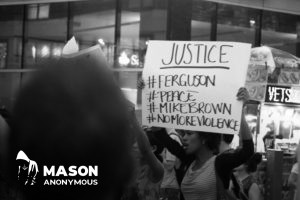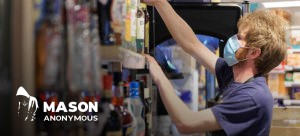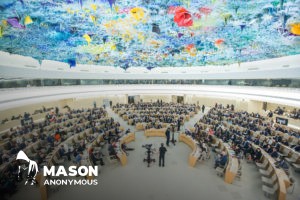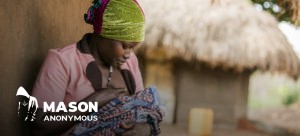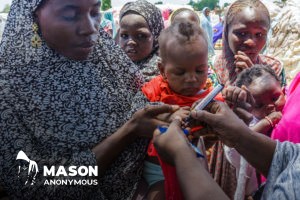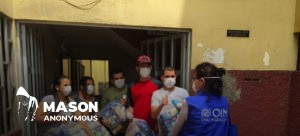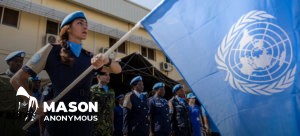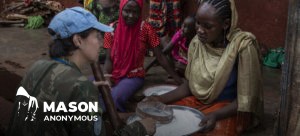UN News spoke to Susan Hayter, a Senior Technical Adviser on the Future of Work at the Geneva-based International Labour Organization, about how COVID-19 could change our working lives.
A few large companies have said employees need not commute to work again Susan Hayter, Senior Technical Adviser on the Future of Work, ILO
What are the longer-term effects of the pandemic on the workplace in developed countries, once the immediate crisis is over?
Before the pandemic, there was already a lot of discussion on the implications of technology for the future of work. The message was clear: the future of work is not pre-determined, it is up to us to shape it.
However, that future has arrived sooner than anticipated as many countries, companies and workers shifted to remote working in order to contain the transmission of COVID-19, dramatically changing how we work. Remote virtual meetings are now commonplace and economic activity has increased on a range of digital platforms.
The ILO’s Susan Hayter has been telecommuting during the coronavirus pandemic., by ILO
As the restrictions are lifted, a question that is on everybody’s mind is whether this ‘business as unusual’ will become the ‘new normal’. A few large companies in developed economies have already said that what has been a large and unplanned pilot – remote teleworking – will become the standard way of organizing work. Employees need not commute to work again, unless they choose to do so.
Is this a good thing?
This may indeed be cause to celebrate, for people and the planet. But the idea of an end to “The Office” is certainly overblown. The ILO estimates that in high-income countries 27 per cent of workers could work remotely from home. This does not mean that they will continue to work remotely. The question is how we can adapt work practices and reap the benefits of this experience with remote working – for employers and workers – while not losing the social and economic value of work as a place.
In celebrating the innovations in work organization that have supported business continuity during the health crisis, we cannot forget that many will have lost their jobs or gone out of business as the pandemic has brought some industries to a standstill. For those returning to their place of work, the quality of work will be a key issue, in particular safe and healthy workplaces.
What needs to happen next?
Post-pandemic, workers like these at a factory in Addis Ababa, Ethiopia will want to be assured their workplace is safe, by Lin Qi
The degree of workers’ trust in the measures taken by employers to make workplaces safe, will no doubt have an impact on the return to work. Engagement with trade union representatives, where these exist, is a must.
Everything from protocols for social distancing, monitoring and testing, and the availability of personal protective equipment (PPE) need to be discussed to make this work.
For workers in the gig economy, such as food delivery and ride-hailing workers, work is not a place, but an activity performed for an income. The pandemic has revealed the false choice between flexibility and income security. These workers may have no or inadequate access to sick leave and unemployment-insurance benefits. We need to tap into the brave new world to ensure that their work is performed under conditions that are safe.
How different do you expect the workplace in developing countries to look?
The ILO estimates a 60 per cent decline in the earnings of the almost 1.6 billion workers in the informal economy in the first month of the crisis. These workers are simply not able to work remotely and face the impossible choice of risking life or livelihood. Some countries have adopted measures to shore up this essential income while also ensuring adequate hygiene and PPE for employees and customers, informal enterprises and workers.
As companies begin to evaluate the effectiveness of the shift to remote work and their ability to tackle data security concerns, new opportunities may open up in services for developing countries with the necessary infrastructure.
However, these off-shoring opportunities in activities such as software development and engineering to financial services, may be accompanied by the reshoring in of other jobs as companies seek to improve inventory management and the predictability of supply chains.
This will have longer-term effects on employment in developing and emerging economies. The challenge is that while it will take time for new service sectors to mature, the negative impact of rising unemployment will be felt immediately. Inequalities in digital readiness may further inhibit countries from seizing these opportunities.
What are the benefits and drawbacks of remote work?
There may be opportunities for developing countries, like Nepal, to benefit from a global move to remote working., by World Bank/Peter Kapuscinski
The shift to remote work has enabled many companies to continue to operate and ensure the health and safety of their employees. Those able to make the transition to remote work during the health crisis have had the opportunity to share meals with their families. Work has become human-centred to accommodate homeschooling and child and elder care.
Yet, the lines between working time and private time have become blurred for these individuals, causing an increase in stress and exposure to mental health risks.
In the face of a dramatic economic downturn caused by the pandemic and surging unemployment figures, there are opportunities to leverage these changes in work organization to design new job-sharing schemes that allow for flexibility and save jobs. This may mean shorter work weeks or work-sharing arrangements to avoid furloughs in lean times, while reshaping working time arrangements to achieve better work-life balance in the longer-term.
The digital transformation of work and possibility to engage in remote work has also been accompanied by other benefits. It has presented possibilities for older, more experienced workers to prolong their working life on their terms and provided work opportunities for those in rural communities. However, for many others, it has compounded a sense of isolation and a loss of identity and purpose. The social value of work and the dignity and belonging we derive from it cannot be replaced by virtual rooms, no matter how casual our attire while we occupy them.
To what extent will the pandemic entrench rising inequality?
While the pandemic may represent a tipping point for the digital transformation of the workplace, it has also revealed deep fault lines. It is those in the upper income brackets who are the most likely to choose to work remotely, whereas those in the lowest have no choice; they will have to commute and are more likely to be time-poor as a result.
Looking to the future, as digital and online work becomes the new normal, the demand for skilled workers is likely to rise along with their wages. The contributions of care-workers and other workers (e.g. teachers and staff in grocery stores) will be more highly valued than before. Yet, many low-paid workers whose wages have been stagnating in the face of declining union power and a shifting employment relationship are likely to see their incomes eroded even further as the ranks of the unemployed increase.
Historically, economic shocks, pandemics and wars have exacerbated inequality. The remaining question is whether this one will be a tectonic shift with rising political and social instability, or a shock that leads us to reinforce the foundations of just societies and the principles of solidarity and democratic decision-making that move societies, labour markets and workplaces in the direction of equality.
